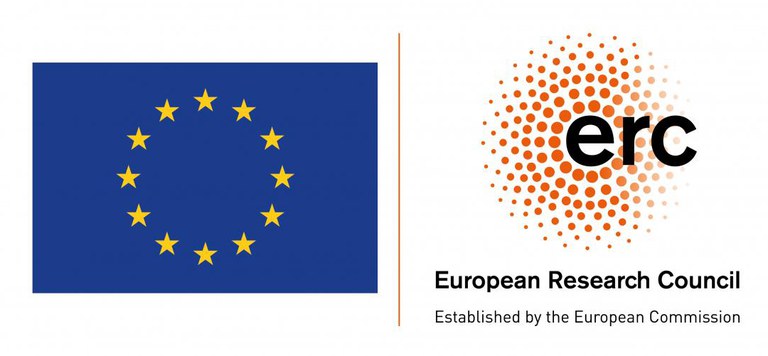Elahe Haschemi Yekani, Anja Sunhyun Michaelsen and Anne Potjans
The term diasporic ordinary is intended as an intervention against the recurring claim that migration is an exception or a novelty. We counter the sensationalisation of the so-called refugee crisis, for example, by emphasizing the ordinariness of migration. Following Raymond Williams’ claim that “culture is ordinary”, we posit that migration, too, is ordinary. We want to break away from a discursive logic that is itself racially structured in the assertion of the always unprecedented (migration, racism). By normalising migration, we hope to counteract historical forgetting.
Ordinary can also be understood as a code word for conviviality (Paul Gilroy) or the autonomy of migration (Transit Migration), terms that divert attention from a supposed crisis of migration and focus on what works in the everyday. This does not ignore tension. For us, it is important to acknowledge different versions of the diasporic ordinary, to ask what it means to live in divergent migrant as well as majority German contexts, including different languages and concepts of normalcy.
We also understand the experience of systemic violence as an ordinary – but not normal – aspect of diasporic and migrant experience. The diasporic ordinary includes a common presence of experiences and stories of war, seeking refuge, deprivation, trauma, and racism. This quotidian proximity to violence is not necessarily perceived as something ‘out of the ordinary’ by the subjects concerned. Rather, the experience of ‘ordinary extraordinary’ events often leads to an unacknowledgeability both on the part of the person concerned, as a form of epistemological impasse in trying to understand the incommensurable, and as an expression of a violent denial on the part of dominant society that produces specific affective landscapes.
Understood in this way, the diasporic ordinary encompasses different levels of meaning: the historical normality of migration, the ordinariness of living together in societies shaped by migration, and the ordinariness of extraordinary violence. We work on a complex concept of the diasporic ordinary that allows us to grasp these things simultaneously. This means, for example, rejecting the impositions of ‘conditional belonging’ and being allowed to be “ungrateful” (Dina Nayeri), at an affective distance, rejecting national appropriations as model minorities. This requires looking for strategies and aesthetics of survival and living well, scripts of belonging, forms of knowing differently, including humorous diasporic tonalities and fabulations (Gayatri Gopinath, Saidiya Hartman, Tavia Nyong’o). The concept of the diasporic ordinary grows in multiple directions.
We understand postcoloniality not only as a concern of others outside of Germany. In the German context, what can postcolonial studies be “closer to home”, without merely transferring academic frameworks from the USA or the UK? For us, this means going beyond a concept of diaspora that is often nationally conceived, and looking for forms with which stories can be told more transnationally, along (colonial) historical entanglements (Lisa Lowe). In doing so, we do not want to compare, but to juxtapose different contexts and perceive the resulting resonances. This goes hand in hand with not only looking at the relationship between majority and minority populations. It is also about taking seriously the diverse relationships and power relations within and between different diasporic groups and not letting everything disappear in a white/non-white binary – a simplistic view that tends to reinforce inequalities. Looking at hierarchies, relations of violence and solidarisations not only along this one line of difference requires abandoning one-dimensional positionalities that often organise political spaces and cultural narratives/aesthetics. Instead, we hope to be opening the gaze to complex relations between and within different diasporic contexts. In this, following, for example, Roderick A. Ferguson, we recognise a queer potential for more radical coalition building.
In trying to resist the assertion of the ‘new’, we are not only looking at contemporary culture. Therefore, the question of the archive and alternative forms of writing are central to us – because of the interconnections between big world events and small movements of individuals, the diasporic ordinary allows neither distanced abstraction nor biographical reduction. We take the current interest in autotheory as an opportunity to explore its productivity, especially for extending our understanding of diaspora and migration and to ask how precisely these contexts produce a different theorisation of the self. We turn to texts, art and films of different genres to see what might be imagined and articulated in different media at different historical moments. We recognize, for instance, that among diasporic and migrant writers at times there seems to be a preference for writing poetry over longer prose texts, given the possibilities that poetry offers people who may have never written before, publish in small editions, with little market value, and for a relatively small community of readers. We are also interested in artists who were active long before they gained wider recognition (e.g. Lubaina Himid, Sonia Boyce, Nzingha Guy St. Louis).
Above all, we are also looking for forms that overcome conventional generational narratives. No one wants to be asked where they come from anymore; at the same time, we can observe how it is increasingly possible, albeit often with great difficulty, to tell stories that have not been told enough. Normalising migration also means inscribing it into history, including a possibly difficult heritage from the countries of origin. We want to take a look – also a critical one – at how migration stories are told, which dominant forms of (self-)identification circulate, how they serve nostalgia and occasionally depoliticise by leaving the abject – ‘the bad stuff’ – in the past. Looking into and working on the archive determines what remains of migration history and diasporic everyday life. This also requires paying attention to what the archive does not hold and facing the resulting challenges for a desire for more complex representations.


